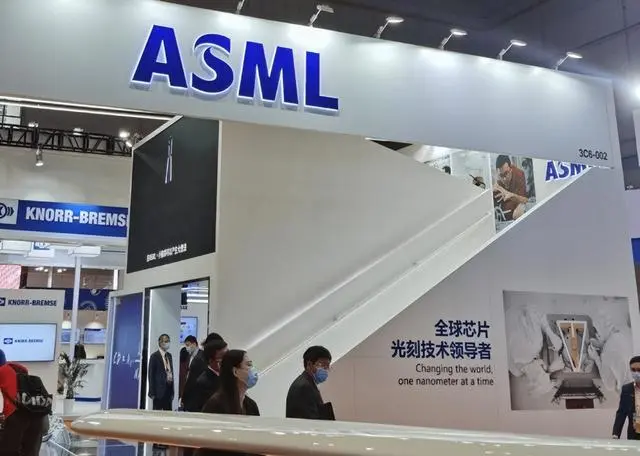During the China International Import Expo (CIIE), Mr. Shen Bo, the President of ASML in China, and Senior Vice President of the global ASML corporation, expressed his optimism for the company’s performance in the Chinese market in the upcoming year during an interview with China Daily. He stated that ASML’s business in China has shown rapid growth this year, and it is expected that China’s contribution to ASML’s global revenue will exceed 20% by the end of the year.
Shen Bo mentioned, “In 2023, we are planning to hire over 200 employees in China, and in 2024, we anticipate continued growth in our business, which should result in a significant expansion of our team. Of course, we are still in the process of planning the specific figures, but the overall growth of our team is certain.”
In the third quarter of this year, China accounted for 46% of ASML’s global revenue. Shen Bo stated, “For the entire year, we expect it to be more than 20%, which represents significant growth compared to previous years.”
Looking ahead to the next year, Shen Bo emphasized, “We see strong demand in the mature process sector, and we are very optimistic about our business in China next year.”
Shen Bo mentioned that from the first ASML machine being introduced to China in 1988, by the end of 2023, ASML will have installed nearly 1,400 lithography and metrology machines in China. He added, “In fact, the growth we have seen in China over these years has been quite substantial. We have been continuously investing in this endeavor.”
Regarding recent U.S. export control measures on semiconductor equipment, Shen Bo stated that these new measures are somewhat complex, and ASML is still studying their specific impact. “Based on our current understanding, these export controls will affect only a few of our customers. From a quantitative perspective, taking this year’s ASML China business volume as a reference, the impact on our business next year is estimated to be around 10-15%, so overall, it’s manageable.”
Due to the current limitations on advanced semiconductor processes, China is intensifying efforts to develop mature processes. Some have raised concerns about this move, suggesting it might lead to global oversupply of mature semiconductor products.
In response to this view, Shen Bo explained, “The demand for mature process chips accounts for the vast majority of overall chip demand, while advanced process chips actually represent a small portion in terms of demand volume. In various terminal application fields for different types of chips, even if it’s just for Chinese brands, the demand is already substantial. So, the market size is large enough to provide ample room for the development of mature process chips in China.”
Shen Bo emphasized that the development of mature process chips relies heavily on global cooperation, with all the capacity and technological advancements ultimately serving the global semiconductor industry. From this perspective, the expansion of mature process chip capacity in China not only meets the needs of domestic brands but also offers significant benefits to the global semiconductor industry by providing more choices.
Due to various geopolitical factors, the global semiconductor industry is facing numerous challenges, and some have even declared that “globalization is dead.”
In response to this, Shen Bo emphasized, “We believe that global cooperation has always been the most effective way to drive technological progress in the entire semiconductor industry, or you could say it’s the only way. Currently, for various reasons, there are differing opinions on the application of globalization in the semiconductor field, but from our perspective, only globalization can help the entire industry progress most efficiently.”
Shen Bo pointed out that approximately 85% of ASML’s products are not produced in-house, and they rely on collaboration with the world’s best suppliers to solve various challenges across different domains, including some of the most challenging problems humanity faces.
“We need to work together with China. China has always played a crucial role in the entire semiconductor ecosystem. The market potential in China will bring opportunities to the entire Chinese semiconductor industry and help it better integrate into the global industry,” Shen Bo stressed.
